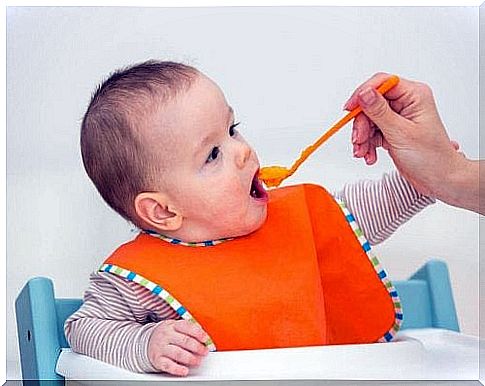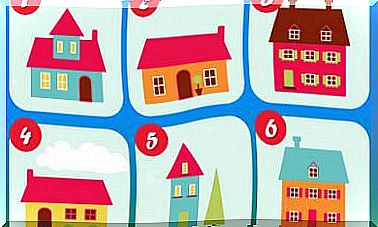How Can You Relieve Constipation In Babies?

In order to learn how to relieve and possibly prevent constipation in babies, you must first determine their normal pattern of bowel movements.
It is considered normal for a baby to have a bowel movement after every meal, up to once a day. And believe it or not, both are considered perfectly normal. It all depends on:
- how the baby is fed
- what they eat or drink
- how active they are
- how fast they digest their food
- the genetic predisposition
Constipation in Breastfed Babies

For a newborn who is only breastfed, there is no ‘normal’ number of bowel movements. Their stools are usually yellowish-orange and soft, even if they haven’t pooped for several days.
A breastfed baby may poop 4 to 5 times a day, up to just once a week. Breast milk is the perfect mix of nutrients, proteins and fats so many breastfed babies just don’t have a lot of waste to get rid of.
You will gradually get to know your baby’s habits. You will also learn which foods you should and should not eat while you are breastfeeding.
Constipation in Bottle-Fed Babies
One of the advantages of breast milk over bottle feeding is that a breastfed baby is less likely to develop constipation. Their new intestines, on the other hand, may have trouble digesting formula properly.
Once you have the right type and amount of formula for your baby, it is considered normal for your baby to have one bowel movement a day. However, breastfeeding is considered the best choice for your baby’s overall health.
When your baby starts on solid foods

In general, constipation problems start when the baby starts eating solid foods, even if they are still breastfed. You probably won’t see any signs of constipation if you give them fruits and vegetables.
However, when they start eating grains (mainly industrialized foods, made from wheat and rice), the first signs of constipation begin to appear.
- Less frequent bowel movements, which indicate that your baby’s normal pattern has changed.
- Difficult passage of stool.
- The stool is harder and drier.
Other Causes of Constipation in Babies
If a baby is dehydrated, stools will be even drier and harder. They will have more trouble defecating as their bodies respond to dehydration by reabsorbing more fluid. They do this from the food and liquids they consume, as well as from what is already processed in their intestines.
There are also medical conditions that can cause constipation such as:
- thyroid problems
- botulism
- certain metabolic disorders
- food allergies
Hirschsprung’s disease or congenital megacolon is the least common disease. This disease is detected in the first few weeks of life and prevents the intestines from functioning properly.
If there are no obvious reasons for a hard and difficult bowel movement, we recommend that you consult your doctor to rule out illness.
Relieving Constipation In Babies

- Try to get your baby to move. If your baby is already crawling, encourage him or her to do so. If they are not crawling yet, lay them on their backs and bend their legs to their chests and up and down as if they were riding a bicycle.
- Abdominal massage. You can do this by moving below the navel about three fingers to the left and then gently yet firmly pressing on their tummy until you feel a bulge. Hold the pressure for about three minutes.
- Change bottle feeding. Talk to your doctor about the best choice for your baby.
- If your baby is already eating solid foods, use plums, peaches and pears puree their food.
- Knowing more?
Suitable fruits for your baby
Pay attention
- A baby should never be given laxatives without a doctor’s approval.
- Do not stimulate their anus with a thermometer. This can be very dangerous for your baby.
- The use of glycerin suppositories to relieve severe constipation should be under immediate medical supervision as frequent use can be addictive.
When should you contact your doctor?

Contact your doctor if:
- The constipation does not go away despite dietary changes.
- Your baby has bloody and painful stools.
- Your baby loses weight and doesn’t want to eat.









